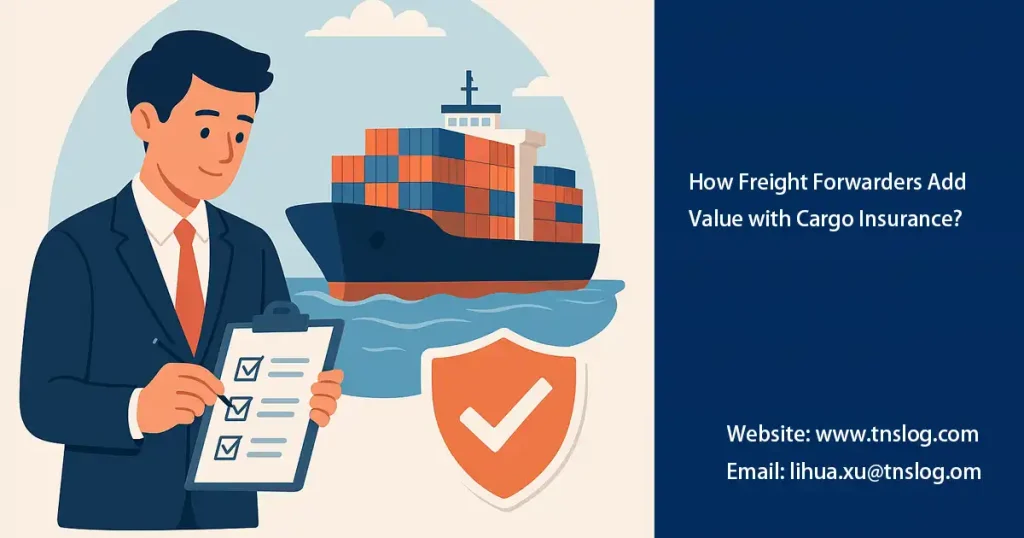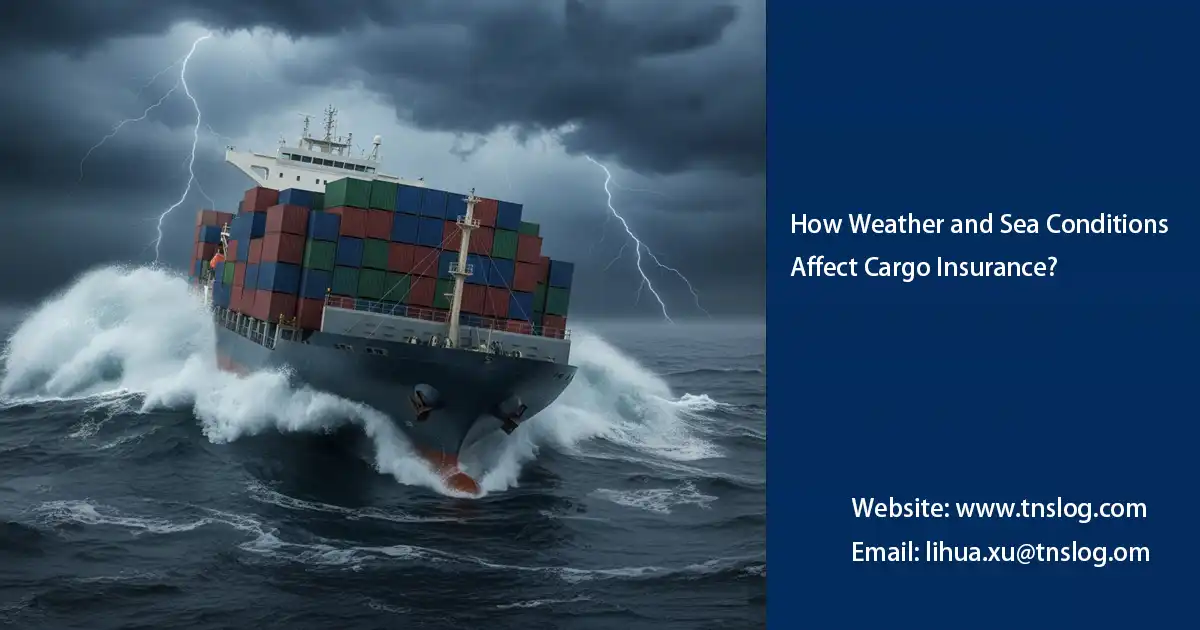How Freight Forwarders Add Value with Cargo Insurance?
Freight forwarders do far more than just arrange shipments—they play a vital role in protecting cargo value through insurance solutions. In global trade, risks such as rough seas, cargo theft, or handling damage can cause significant losses. A knowledgeable freight forwarder not only helps clients buy suitable marine insurance but also manages the entire process—from risk assessment to claims coordination—ensuring that coverage truly works when it matters most.

Comprehensive Risk Assessment from the Start
The first step to adding value begins with a precise understanding of cargo risks.
Freight forwarders evaluate shipment routes, cargo types, and handling conditions to determine the right insurance coverage. For instance, electronics may require moisture protection, machinery may need vibration coverage, and perishable goods may demand temperature-sensitive clauses.
By matching insurance terms with the actual risk profile, freight forwarders help minimize exclusions and claim disputes, ensuring that businesses get the compensation they deserve when damage occurs.
Streamlined Documentation for Faster Claims
Documentation errors are among the top reasons for marine insurance claim delays. Freight forwarders streamline the process by aligning bills of lading, insurance certificates, invoices, and packing lists to maintain consistency.
This organized approach allows claims to be submitted quickly and accurately. To better understand how the claim process works, see our detailed guide: Step-by-Step Guide to Filing a Marine Cargo Insurance Claim.
When incidents happen, this preparedness means quicker insurer approval and faster fund recovery—critical for maintaining smooth business cash flow.
Immediate Response During Emergencies
When cargo damage or loss occurs, the forwarder’s ability to act swiftly makes all the difference.
They can immediately contact surveyors, preserve evidence, and coordinate mitigation steps such as cargo segregation or temporary warehousing.
A reliable freight forwarder ensures the collection of key documentation—inspection reports, timestamped photos, and transfer receipts—strengthening the insurance claim and speeding up compensation.
Cost Efficiency through Market Leverage
Freight forwarders often have established partnerships with insurers or brokers, enabling them to negotiate lower insurance premiums and broader coverage for their clients.
Because they handle large shipping volumes, they can secure favorable terms such as reduced deductibles and added protection clauses.
This provides shippers and exporters with comprehensive coverage at a lower cost, which is often more competitive than purchasing insurance independently.
If you’re still weighing whether to buy coverage through your logistics partner, check out our related article, Should You Buy Marine Insurance Through Your Freight Forwarder?, which explores the cost-benefit considerations in detail.
Expert Risk Management and Preventive Guidance
An experienced freight forwarder is also a risk advisor. They provide valuable recommendations to prevent losses before they happen—suggesting better packaging, load securing methods, and optimal container selection.
This proactive involvement reduces the likelihood of claims and strengthens the company’s ability to prove due diligence when filing for compensation.
Continuous Coverage in Multimodal Shipments
In modern global logistics, cargo often moves through multiple modes of transport and third-country hubs.
By integrating cargo insurance with the logistics chain, freight forwarders ensure there are no coverage gaps. Policies can be customized to extend protection to inland transport or temporary warehousing, guaranteeing that the insurance “travels with the cargo” from origin to destination.
Transparency and Trust
A professional freight forwarder will always provide full transparency regarding insurer details, coverage scope, exclusions, and pricing structure.
This helps clients make informed decisions about their marine cargo insurance while maintaining trust and accountability throughout the process.
Conclusion
Freight forwarders add significant value to cargo insurance management through expert risk assessment, efficient documentation, rapid claims handling, cost optimization, and professional consultation. Their involvement transforms insurance from a mere policy into a powerful risk management tool that protects shipments, strengthens financial stability, and enhances operational resilience.
If you want to learn how to integrate marine insurance into your logistics strategy or explore ways to reduce your insurance premium, talk to us today. Our experts can help you design a coverage plan that balances cost, efficiency, and peace of mind.
You may also be interested in
Have Anything To Ask Us?
Please fill in your email in the form and we’ll get back to assist you soon!




